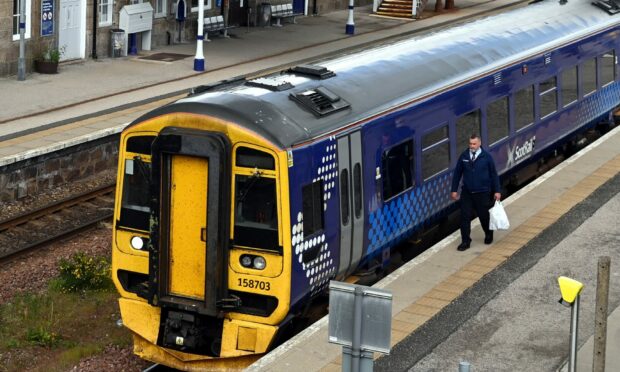Rail passengers could yet face more disruption after a union representing ScotRail workers were said to have rejected the 5% deal offered to train drivers.
Scotrail has claimed that The National Union of Rail, Maritime and Transport Workers (RMT) is preparing to ballot their members on strike action rejecting a similar offer that was agreed by the Aslef union.
Aslef, the union that represents train drivers in Scotland, agreed to a 5% pay deal with Scotrail yesterday.
Resisting using new technologies
David Simpson, Scotrail’s service delivery director told BBC’s Good Morning Scotland: “We made an almost identical offer to RMT yesterday, and we’re extremely disappointed that they have already informed us they are planning to put that to a ballot.
“And the issue that’s at stake here is the use of new technologies such as mobile phones, to check electronic tickets, receive briefings, and so forth. RMT are resisting that.
“The use of technologies, it’s very well embedded across the industry. Other grades of Scotrail use them already. And that’s the thing that’s causing them to go to the ballot on this and not give their members a referendum on the offer.”
What if RMT goes on strike?
Mr Simpson assured passengers that any RMT action would be less disruptive than train drivers on strike.
Over the last month, services have been slashed as train drivers refused to work overtime, resulting in a shortage of around 120 drivers.
In response, ScotRail introduced a reduced timetable, with 700 fewer services each day and which was labelled a “hammer blow” to the north.
“We are not as reliant on rest days working overtime amongst the RMT grades,” Mr Simpson said.
“So we don’t expect the same impact on the timetable should the RMT go down that road.
“We would work as hard as possible to provide the full service.”
Over the past month chaos has been caused around the country as drivers refused to work overtime and the company has a shortage of around 120 drivers.
RMT’s 5% pay offer is larger than most of the public sector will be receiving. The public sector pay policy for 2021-22 guarantees a basic pay increase of just 1% for public sector workers earning between £40,000 and £80,000.
How quickly could the full timetable be back?
Mr Simpson previously said that it could take a week to 10 days to get the full timetable back up and running.
He confirmed that again today, adding: “It depends on the timing of any decision and where that fits in with where we populate industry systems, signaling and so forth.
“So it is a week to 10 days at most.”
RMT Response
RMT general secretary Mick Lynch said: “This matter has not been considered by our National Executive Committee and will be put before them next week so they can make a decision.”
An RMT spokesman added: “Scotrail issued a statement which was incorrect.
“No decision has been made by the RMT on this matter and our NEC will meet in due course to discuss it.

Conversation